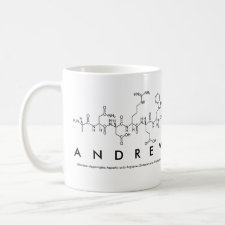
Authors: Krstulja A, Lettieri S, Hall AJ, Delépée R, Favetta P, Agrofoglio LA
Article Title: Evaluation of molecularly imprinted polymers using 2',3',5'-tri-O-acyluridines as templates for pyrimidine nucleoside recognition.
Publication date: 2014
Journal: Analytical and Bioanalytical Chemistry
Volume: 406
Issue: (25)
Page numbers: 6275-6284.
DOI: 10.1007/s00216-014-8017-z
Abstract: In this paper, we describe the synthesis and evaluation of molecularly imprinted polymers (MIPs), prepared using 2',3',5'-tri-O-acyluridines as 'dummy' templates, for the selective recognition of uridine nucleosides. The MIPs were synthesised using a non-covalent approach with 2,6-bis-acrylamidopyridine (BAAPy) acting as the binding monomer and ethylene glycol dimethacrylate (EGDMA) as the cross-linking agent. The MIPs were evaluated in terms of capacity, selectivity and specificity by analytical and frontal liquid chromatography measurements. The results obtained in organic mobile phases suggest that the nucleosides are specifically bound to the polymer by the complementary hydrogen bonding motifs of the binding monomer and the nucleoside bases. The MIPs exhibited relatively high imprinting factors for 2',3',5'-tri-O-acyluridines, while they did not show any binding capacity for other nucleosides lacking the imide moiety on their base. Moreover, the presence of ester-COO groups in the EGDMA cross-linker may lead to the formation of additional hydrogen bonds with the 2',3' and/or 5'-OH of sugar part, allowing enhancement of the recognition of the uridine nucleosides. In aqueous media, results show that the binding is driven by hydrophobic interactions
Template and target information: dummy template, 2',3',5'-tri-O-acyluridines, uridine nucleosides
Author keywords: hydrogen bonds, molecular recognition, 2',3',5'-Tri-O-acyluridines, Nucleosides, imprinting



Join the Society for Molecular Imprinting

New items RSS feed
Sign-up for e-mail updates:
Choose between receiving an occasional newsletter or more frequent e-mail alerts.
Click here to go to the sign-up page.
Is your name elemental or peptidic? Enter your name and find out by clicking either of the buttons below!
Other products you may like:
 MIPdatabase
MIPdatabase









